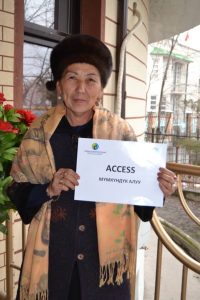
What does farming have to do with human rights?
Most of us are familiar with human rights such as equality, freedom of religion and expression, and freedom from slavery and persecution.
But there are also rights affirmed over the years by the international community, from the UN Declaration of Human Rights – now 71 years old – to the 2018 UN Declaration on the Rights of Peasants and Other People Working in Rural Areas that directly relate to the everyday life of many small-scale farmers and agricultural workers around the world.
The right to just and favourable remuneration ensuring an existence worthy of human dignity.
The right to a standard of living adequate for health and well-being.
Freedom of association, including the right to form trade unions and bargain collectively.
The rights of children to access safe schooling and protection.
In agricultural production, examples of violations of these rights include:
Low prices paid to farmers, resulting in extreme poverty: this violates producers’ rights to a decent standard of living and often causes further infringements of other rights, for example, the right to health and well-being.
Discrimination against women and other minorities: this keeps people locked in exploitative labour situations and denies them their rights to equal protection and fair remuneration.
Employers deterring workers’ attempts to unionize: union busting in any form violates freedom of association.
Fairtrade recognizes that human rights are universal. We also recognize the United Nations Guiding Principles for Business and Human Rights, including Children’s Rights and Business Principles, as a key framework for protecting and respecting human rights of farmers, workers and their communities. It forms the basis for the responsibilities of all business actors along supply chains.
Where Fairtrade comes in
Fairtrade has been advocating these principles for more than 30 years, including that buyers and retailers have a responsibility to ensure that their business practices, including the prices they set, do not violate the rights of farmers and workers, their families and communities.
The Fairtrade Standards require producer organizations and traders to follow rules that guarantee a fairer price to farmers; ensure democratic organization; build equality for women; support labour rights and safe working conditions; and give producers more power in trade relationships.
Beyond the standards, we also dive deeper into specific rights-related challenges. For instance, we have developed living income reference prices for key commodities and regions (such as cocoa and vanilla), and then work with partners to move towards those prices and the other factors that support living incomes for farmers. Producer organizations in 11 countries have implemented our youth-inclusive community-based monitoring and remediation system to tackle child labour. Next year, some producer organizations will be using this inclusive monitoring and remediation system to take action on forced adult labour and gender-based violence. We actively promote social dialogue and collective bargaining between management and workers at Fairtrade certified plantations.
Here is one examples of a project implemented by Network of Asia and Pacific Producers (NAPP), that is helping farmers and workers more fully realize their rights.
Promoting gender equality
Network of Asia and Pacific Producers (NAPP) implemented Women’s Schools of Leadership in all Fairtrade producer regions, including in four countries in the Asia Pacific region. Participants learn from a curriculum including topics from women’s human rights and development of self-esteem, to income diversification and project management, and then share their knowledge back at home.
Tran Ban Hung, Vietnam program manager for the region’s Fairtrade producer network (NAPP), says the leadership school “supports producers, especially young farmers, to learn to equip themselves with a knowledge of human rights and women’s rights, [so they can] be a champion of change. Change for the community, change for their cooperative, and [to] bring a generation of protecting the rights of farmers and workers, especially for women and other vulnerable people.”

Ziynat Kalikova- Member of Bio Farmer Agricultural Commodity and Service Cooperative (SPO), Kyrgyzstan; FLO ID: 20294
“Through the training received – I learned the importance of knowing ‘Workers Rights’. It is only by understanding our rights as a worker, strengthening our cooperatives to protect human rights and ameliorating the root causes of gender discrimination, can we achieve a gender equality state in any organization. ”
This is one examples of the concrete improvement that a focus on human rights can bring about, when people are empowered to know their rights, and advocate for them. There is much to be done, but one way we can all take a stand for human rights – on Human Rights Day and all year round – is by choosing Fairtrade.



